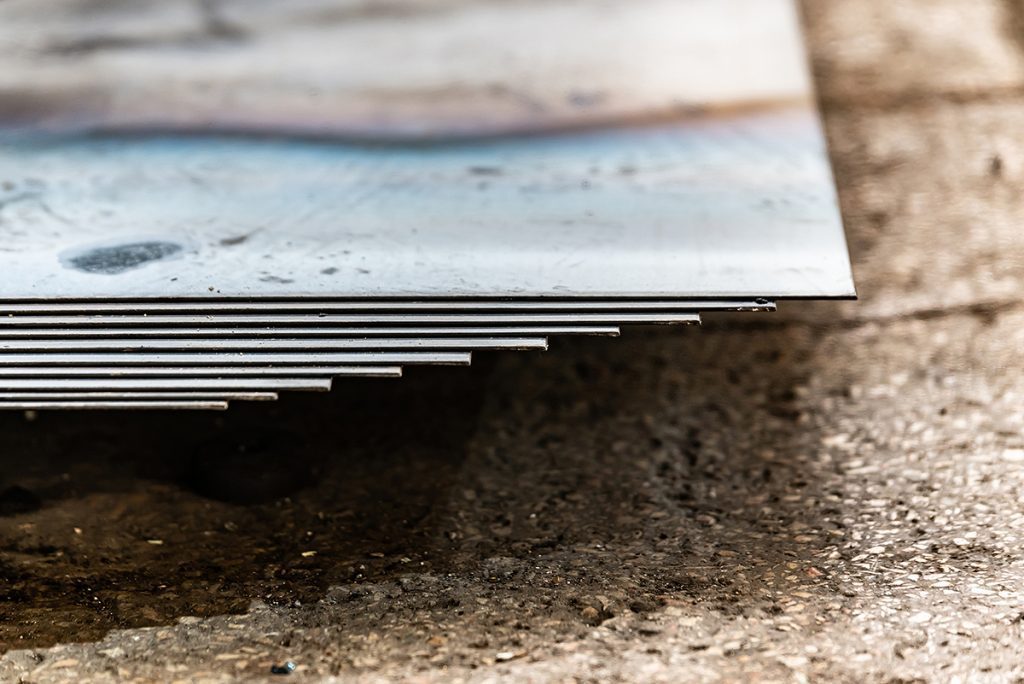Metal fabrication is a vast term encompassing various techniques and processes to transform raw metal into our final products daily. Metal fabrication is critical in the cars we drive and the buildings we live and work in. However, when it comes to unique projects, the metal fabrication process requires special attention to detail at every step to ensure quality, precision, and functionality. Keep reading if you want to explore some of these unique projects and their specific considerations.
What Is the Metal Fabrication Process and Why Does It Matter?
Metal fabrication is building machines and structures from raw metal materials. The process includes cutting, burning, welding, machining, forming, and assembling the metal for the final product. Understanding what metal fabrication involves is crucial because it affects everything from the design phase to the durability and functionality of the finished product.
How Do Custom Metal Fabrication Projects Differ?
Custom metal fabrication projects are tailored specifically to a client’s requirements, often involving unique designs or specifications not found in standard projects. These can range from intricate art installations to specialized industrial machinery. What makes these projects stand out is their need for precision and the often complex nature of their designs, requiring advanced techniques like laser cutting and computer-aided design (CAD).
What Role Does Material Selection Play in Unique Fabrication Projects?
Choosing the right material is paramount in any metal fabrication project, but it becomes even more critical when dealing with custom creations. Different types of metal have varying properties, such as strength, malleability, and resistance to corrosion, which can significantly impact the project’s outcome. For example, sheet metal might be perfect for ductwork, but stainless steel could be necessary for a food processing plant’s equipment.
What Are Some Unique Projects That Might Need Special Metal Fabrication Considerations?
Unique projects that require metal fabrication often come with a set of challenges that demand specialized considerations. These considerations range from the choice of materials to the specific fabrication techniques employed. Drawing from various sources that highlight the importance of planning, design, and collaboration in metal fabrication projects, here are some examples of unique projects that might need special considerations during their fabrication process:
- Custom Architectural Elements: Fabricating custom architectural elements such as intricate facades, bespoke staircases, or unique lighting fixtures requires a deep understanding of aesthetics and structural integrity. Each piece must be carefully designed and fabricated to meet the visual demands of the project while ensuring safety and durability.
- High-Precision Industrial Machinery: Fabricating industrial machinery that operates under high-precision requirements involves meticulous planning and execution. Components for manufacturing, petrochemicals, or oil and gas industries must meet exact specifications, demanding high accuracy in cutting, machining, and assembly processes.
- Custom Automotive or Aerospace Parts: Custom or limited-production vehicles and aircraft require bespoke parts that may not be readily available. These parts can include everything from lightweight structural components to custom engine parts. Specialized metal fabrication processes such as precision laser cutting and advanced welding techniques are crucial for achieving the desired performance and fit.
- Marine Structures and Components: Items exposed to marine environments require materials and fabrication techniques that resist corrosion and withstand harsh conditions. This includes everything from ship parts to coastal installations. Choosing the right metal, such as stainless steel or aluminum alloys, and applying protective finishes are vital steps in the fabrication process.
- Prototype Development: Creating prototypes is a critical step in developing new products. Depending on their intended function and performance requirements, these prototypes might be made from various metals. Close collaboration between designers and fabricators is essential to refine the prototypes through multiple iterations, optimizing the design for mass production.
These unique projects exemplify the diverse nature of metal fabrication and the necessity for specialized knowledge and skills. Each project presents its own set of challenges, from material selection and design considerations to the intricacies of fabrication techniques. Success in these endeavors relies on a comprehensive understanding of metal fabrication processes and effective communication and collaboration between all parties involved.
Why Is the Cutting Process Vital for Achieving Precision in Metal Fabrication?
Cutting is one of the first steps in metal fabrication, setting the stage for the project’s overall success. Techniques like laser, waterjet, and plasma cutting allow for high precision, which is essential for creating perfectly fit components. This fit is crucial for projects with intricate designs that must meet strict tolerances.
How Can Advanced Welding Techniques Enhance Custom Fabrication Projects?
Welding is another critical aspect of metal fabrication, particularly for custom projects. Advanced welding techniques such as TIG (Tungsten Inert Gas), MIG (Metal Inert Gas), and stick welding offer different advantages, from working with various metals to enhanced control over the welding process. Choosing the right welding technique can significantly affect the final product’s strength and appearance.
What Advantages Does Powder Coating Offer for Metal Fabrication?
Finishing processes like powder coating provide an aesthetic boost to the fabricated metal and offer protection against wear and corrosion. Powder coating creates a durable, uniform finish that is tougher than conventional paint, making it an excellent choice for indoor and outdoor projects.
Get the Attention to Detail You Need in the Metal Fabrication Process
Unique projects in metal fabrication demand a level of care and expertise beyond what you will find with ordinary metal fabricators. From the initial design to the final finishing touches, special attention to the fabrication process ensures that these projects meet and exceed expectations. Whether selecting the right materials, precision cutting, skillful welding, or applying protective finishes, each step is critical to achieving the desired outcome. By understanding these processes and the options available, fabricators can tackle even the most challenging projects with confidence and creativity. If you have a project that requires a challenging or unique metal fabrication process, contact us at GSM Industrial today!

